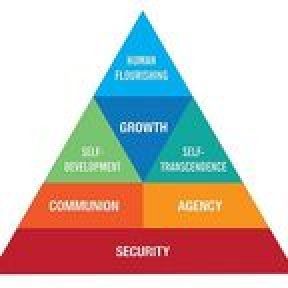Environment
Psychology and Climate Change: Some Need-to-Knows
We can slow, halt, and reverse rising temperatures. Psychology can hurt or help.
Posted October 15, 2023 Reviewed by Gary Drevitch
Key points
- We know what to do and how to do it, starting now. Going forward, our choices will make all the difference.
- Common biases, emotions, past experience, and current situations influence behavior more than the future.
- We do not devote enough mindshare to likely and possible futures. Strategic future mindedness will help.
- Intrinsically rewarding actions, responsibility for the future, and knowing our agency can help.
Climate scientists have done the world a monumental favor by studying, learning about, and alerting us to Earth's dangerous trajectories. It is now time for psychology and other behavioral sciences to help strategically change our current trajectories into new ones that lead to our best possible futures.
Ours is the only species with the means and the agency to do that. We can slow, halt, and reverse rising temperatures; within just a few years, they can fall to more comfortable levels. Our choices going forward will make all the difference.
Here are some fundamental need-to-knows about our tendencies to do too little about climate change and how we can do much better.
(Ir)Rationality. We often aspire to and take pride in making rational decisions. But rationality is rarer than we seem to realize. Emotions are informative, and cognitive biases help us make quick decisions, but they often thwart wisdom.
Regarding climate change, two of many common biases include discounting the future (short-termism) and preferring the status quo over change. Past experiences, current routines, and pressing circumstances drive our choices more than likely futures and more than opportunities to change course toward our self-chosen, best possible futures.
We—citizens, companies, governments, leaders, and decision-makers of every stripe—do not devote nearly enough mindshare to our likely climate future, the worst scenarios to avoid, and the better futures we can create. But we do have a much better option: increasing that mindshare by strategically deploying a clear-headed future-mindedness.
When short-term costs and opportunities threaten to inspire myopic choices that sabotage the longer-term climate, we can pointedly and fully consider longer-term costs and benefits and how investments in new infrastructure and other climate initiatives will likely cost far more now than later.
Rewards as Motivators
Evidence confirms common sense: Financial and other extrinsic rewards can motivate climate-friendly behaviors such as reducing household energy consumption. But an altogether different payoff is crucial for the long haul of fighting climate change. Intrinsic rewards come from doing important, interesting, enjoyable, high-variety activities consistent with one's values, perceived as meaningful, and serving a higher purpose.
Gamification is one strategy that motivates climate engagement by being inherently rewarding; others include seeking meaningful and high-impact climate actions and changing them to create variety. Additional strategies for not giving up include reminding yourself and others about long-term payoffs and appreciating how much you learn and contribute along the way. Enjoying rewards inherent to the journey will be essential (and available) as we try to sustain needed climate actions over long time periods.
Don’t worry about the classic undermining effect, in which money and other extrinsic payoffs reduce intrinsic motivation. Lab experiments demonstrating this effect differ vastly from the many rewards inherent to valuable climate work, and recent lab research shows that early delivery of extrinsic rewards can increase intrinsic motivation.
False vs. True Beliefs
Facts don’t often change people’s minds. Motivated reasoning is the frequent culprit; when we've already made up our minds, we resist new conflicting information and defend our established positions with other (nonvalid) explanations and arguments.
A possible key exception regarding climate change: Data show that at least 97% of bona fide climate scientists know that climate change is happening. Despite mistaken and widespread beliefs that division, and not a strong consensus, describes the scientific community, presenting these findings can serve as a gateway belief that might open and change minds.
Responsibility and Agency
We can identify who is most and least responsible for the climate plight we now find ourselves in. But who is—and who feels—responsible for putting things right?
Responsibility for past actions is one thing; responsibility for the future is another. What theory calls “felt responsibility" is a key influence on whether and how people will take action on problems and other challenges.
Justice will be served if those who contribute(d) most to climate problems act responsibly and pay the highest cost. But that won't solve the problem; too few people, organizations, and governments would help enough to reverse global heating. We will attain our best future only if all who are capable accept some responsibility for participating substantially in the cause.
Human agency is strong enough to secure a climate future that is not much worse than what we experience now. We have 100% agency in that we know what to do, know how to do it, and are fully capable of doing it starting now. But we do not have agency if we believe we can't, don't try, or try half-heartedly and give up prematurely.

Self-actualization and Flourishing
Three-quarters of a century ago, Abraham Maslow famously wrote about the human need to self-actualize plus physiological, safety, social, and esteem needs. Climate change harms our ability to meet every one of those needs.
An updated, research-based hierarchy of human motives places flourishing at the highest level. Another critical update includes agency and control as a core motive that can actively change current trajectories, strategies, and tactics in the practical pursuit of every need. Regarding climate change, we are losing control. But we retain and can strategically revitalize our human agency toward turning the tide and restoring constructive control.




